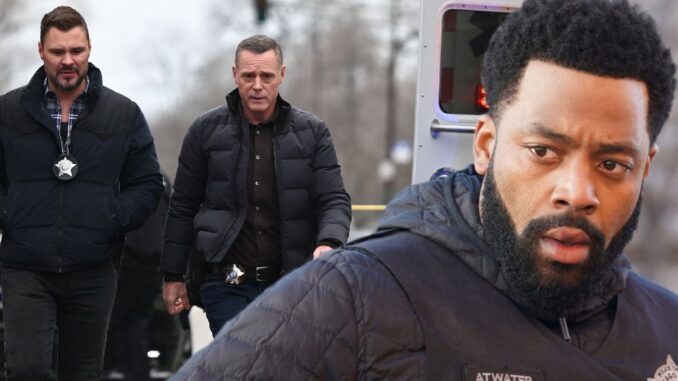
Chicago's Finest Under the Sun: Daylight Changes and the Ever-Evolving Roster of the Chicago PD Franchise
The Chicago PD franchise, a gritty tapestry woven with threads of justice, corruption, and the complexities of modern policing, has become a primetime staple. As seasons turn, the sun rises and sets, not only on the streets of the Windy City depicted on screen, but also on the show itself, bringing with it inevitable daylight adjustments in storytelling and changes to the faces we've grown to recognize. This essay will delve into the ways the franchise has adapted to the evolving television landscape and explore the latest daylight updates, focusing particularly on cast news and its impact on the intricate dynamics within the Intelligence Unit and beyond.
One significant “daylight” adjustment, observable across the franchise, lies in the increasing focus on serialized storytelling. Early seasons often featured self-contained episodic narratives, allowing viewers to jump in and out without feeling completely lost. However, as the franchise matured, long-arc storylines, often driven by character development and intricate cases that spanned multiple episodes, became more prevalent. This shift towards serialization caters to the modern binge-watching audience, demanding greater commitment but also rewarding viewers with a richer, more immersive experience. For example, Voight's struggle with his past, and the recurring presence of corrupt officials, often simmered beneath the surface for entire seasons, only to explode in dramatic finales, demanding our attention and leaving us eagerly awaiting the next installment. This change, much like the gradual shift from dawn to full daylight, has allowed the writers to explore more nuanced themes and delve deeper into the psychological complexities of the characters.
Furthermore, the franchise has consciously adapted to the “daylight” of contemporary social discourse, particularly concerning police brutality and accountability. While the early seasons occasionally brushed against these issues, recent storylines have tackled them head-on, reflecting a growing awareness of the complexities of law enforcement in the current climate. Characters have been forced to confront their biases, question their methods, and grapple with the ethical dilemmas inherent in their profession. This is a crucial adjustment, reflecting a responsibility to engage with real-world concerns and contribute to a more nuanced understanding of the challenges faced by both police officers and the communities they serve. This newfound introspection, like shedding light on previously dark corners, allows for a more honest and impactful narrative.
The ever-shifting "daylight" of the Chicago PD franchise is perhaps most evident in its cast dynamics. The departure of key players and the introduction of new faces constantly reshape the landscape of the Intelligence Unit, forcing characters to adapt and relationships to evolve. The exit of Sophia Bush as Erin Lindsay, for instance, left a noticeable void, not only for the audience but also for the characters, particularly Halstead, with whom she shared a deeply intertwined history. Her absence forced Halstead to confront his own vulnerabilities and redefined the dynamic within the unit. Similarly, the arrival of new detectives brings fresh perspectives and challenges the established order, shaking up the existing hierarchy and creating opportunities for new alliances and rivalries to emerge. Recent cast additions often reflect a conscious effort to diversify the unit, bringing in characters with different backgrounds and experiences to reflect the multicultural landscape of Chicago itself.
Of course, any discussion of cast changes must address the anticipation and anxieties surrounding potential future departures. The longevity of the franchise inevitably raises questions about the futures of beloved characters. Will Voight ever truly find peace? Will Halstead and Upton finally build a stable future together? These questions, fueled by rumors and speculation, create a constant buzz around the show, demonstrating the deep connection viewers have forged with these fictional officers. The potential for disruption, symbolized by the setting sun, keeps the audience engaged and eager to learn what the future holds.
In conclusion, the Chicago PD franchise has proven remarkably adept at navigating the changing "daylight" of the television landscape. From embracing serialized storytelling to tackling contemporary social issues and adapting to the ever-evolving dynamics of its cast, the show continues to reinvent itself while staying true to its core themes of justice and sacrifice. The ongoing changes, the departures, and the arrivals all contribute to a dynamic and compelling narrative that keeps viewers invested in the lives of Chicago's finest, reminding us that even amidst the darkest nights, the promise of a new dawn, and a new story, always remains. The franchise’s continued success hinges on its ability to recognize and adapt to the shifts in daylight, ensuring its continued relevance and its place as a prime-time powerhouse.
